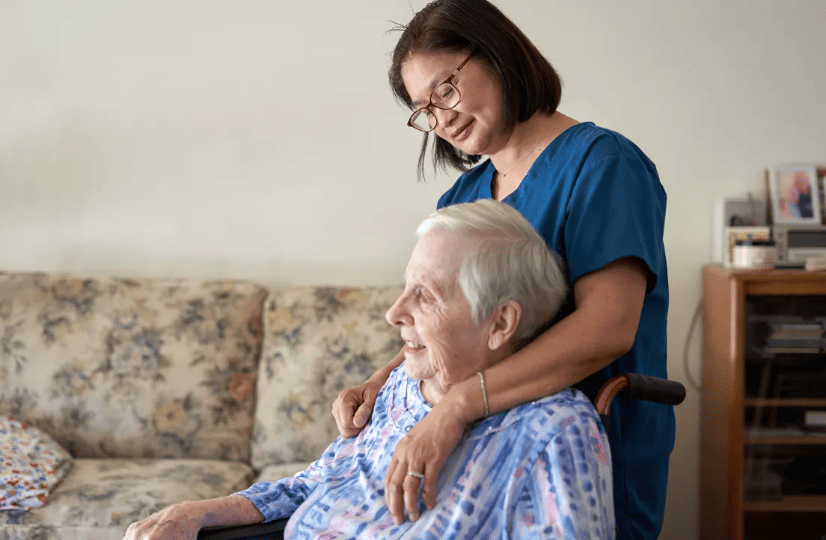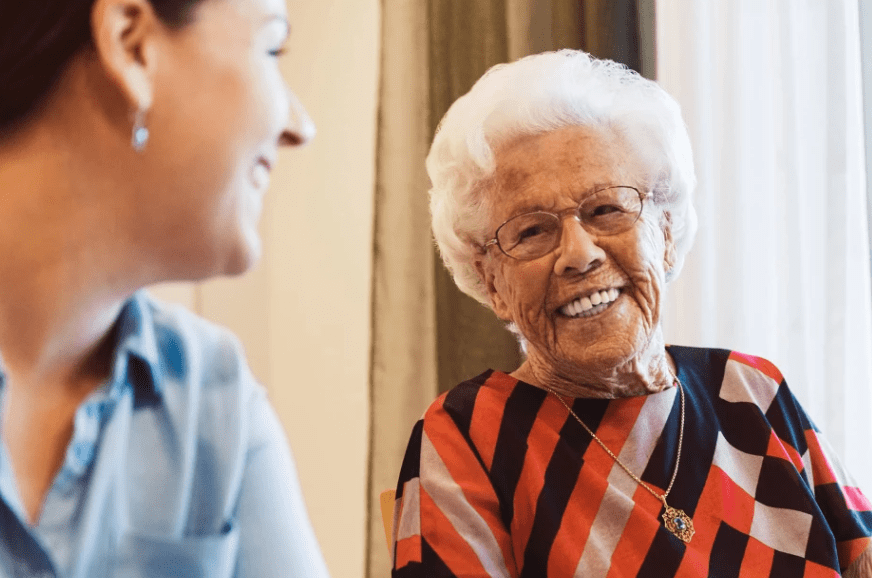- 5 Star Home Care COVID-19 Update PLEASE CLICK HERE
How Elder Care Is Changing In America — The Growing Role of In-Home Care

Why You Should Consider a Career as a Home Health Aide
February 5, 2021
Empowering Independence: How Home Care Agencies Transform Shopping for Seniors
March 12, 2024 The landscape of America’s elder care environment is changing. An increasing number of seniors are seeking to prolong their physical independence. Economic pressures spurred by the 2008 recession as well as the elevated disease risk posed by the COVID-19 pandemic have caused many seniors and their families to consider options other than a nursing facility for elder care. Let’s look at some ways elder care is changing, and at in-home care’s growing role in senior living.
The landscape of America’s elder care environment is changing. An increasing number of seniors are seeking to prolong their physical independence. Economic pressures spurred by the 2008 recession as well as the elevated disease risk posed by the COVID-19 pandemic have caused many seniors and their families to consider options other than a nursing facility for elder care. Let’s look at some ways elder care is changing, and at in-home care’s growing role in senior living.
Maintaining Independence
An increasing number of seniors have shown reluctance to enter a skilled nursing facility unless absolutely necessary. A major driver of this trend is the fact that people are living longer and are remaining functional well into their senior years. These seniors are able to live independently but may require some assistance with activities of daily living (ADLs), such as basic mobility, shopping, transportation, meal preparation, dressing, and light housekeeping.
Many seniors can maintain their independence with once or twice weekly visits from an in-home caregiver. Familiar surroundings have been shown to have a positive effect on mood, memory, and cognitive function among seniors. Also, independent living helps elders to maintain a sense of autonomy and self-sufficiency that is lacking in a nursing facility environment.
Reduced Costs
Another major force in the move toward in-home care is economic. Skilled nursing facilities are expensive, and many seniors lack the resources for initial buy-in costs or the high monthly fees charged by many long-term or skilled nursing facilities.
In-home care offers a substantial cost reduction when compared with full-time residency care. A caregiver can visit as often as needed and can provide the services, comfort, emotional support, companionship and intellectual stimulation that clients need to thrive—without incurring the high costs of residency living.
The Return of the Multi-Generational Home
During the first half of the 20th century, it was common for three or more generations of family members to reside under one roof. And there were some real economic benefits to this arrangement. Family income earners could pool their resources and share childcare responsibilities, while elders helped with chores and were cared for in the home. Multigenerational homes are on the rise again, with the advocacy group Generations United reporting that 51.4 million Americans now reside in multigenerational households, a 10% increase over figures from 2007. This trend reverses that of the late 20th century, which tended to promote a nuclear family structure.
Given America’s growing number of multigenerational households, more families are searching for competent and compassionate care options within the home setting. In-home care aides can visit with elder family members once or more a week, as needed, and can assist with many ADLs. By providing these essential services, in-home caregivers can free family members to address remaining obligations.
Positive Health Impacts of In-Home Care
In-home elder care also provides some real health benefits for seniors. First, because it allows customized care in a familiar setting, home care increases comfort for clients. Regular one-on-one interactions between caregiver and client can also help slow cognitive decline. Caregivers can make use of a client’s familiar surroundings to create memory joggers to assist those with cognitive deficits or memory problems, as often accompany dementia.
In-home care has also been shown to reduce recovery times for seniors who’ve experienced a fall or surgical procedure, helping them bounce back both physically and emotionally.
Another advantage of in-home senior care is that family members are welcome to share their input with caregivers—helping to determine the best ways to share duties and delegate responsibilities.
At 5 Star Home Care, we provide compassionate and skilled caregivers for seniors seeking to maintain their independence. Our caregivers are experienced in working in the home setting and can assist with vital daily duties, provide companionship and conversation, and support effective communication between family members.
Looking for an alternative to senior residency care? Contact us today!




